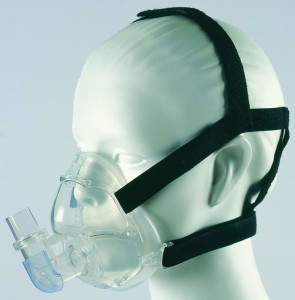January 9, 2014
 The Wall Street Journal (1/9, Petersen, Subscription Publication) reports that according to a study published online Jan. 8 in the New England Journal of Medicine, a surgically implanted device that stimulates a nerve in the jaw located at the base of the tongue appears to reduce symptoms of obstructive sleep apnea (OSA). For some patients, this may present an alternative to conventional Continuous Positive Airway Pressure (CPAP) in which cumbersome masks must be worn while sleeping.
The Wall Street Journal (1/9, Petersen, Subscription Publication) reports that according to a study published online Jan. 8 in the New England Journal of Medicine, a surgically implanted device that stimulates a nerve in the jaw located at the base of the tongue appears to reduce symptoms of obstructive sleep apnea (OSA). For some patients, this may present an alternative to conventional Continuous Positive Airway Pressure (CPAP) in which cumbersome masks must be worn while sleeping.
The New York Times (1/9, Saint Louis) “Well” blog reports that the new “device, called a neurostimulator, helped reduce breathing interruptions and raise blood oxygen levels in about two-thirds of sleep apnea patients participating in a trial” conducted at “22 sites internationally, in 126 patients.”
The Minneapolis Star Tribune (1/9, Walsh) reports that the device is made by Inspire Medical Systems of Maple Grove, MN. The New England Journal of Medicine piece “highlights Inspire’s Stimulation Therapy for Apnea Reduction (STAR) trial, which followed participants for a year after the device was implanted, and showed that upper-airway stimulation was safe and effectively treated moderate to severe obstructive sleep apnea.” What’s more, the study authors “said the technology…improved quality of life.”
The Pittsburgh Tribune-Review (1/9, Erdley) reports that physicians “say the device could benefit as many as 18 million Americans who suffer from” OSA. Next month, the FDA “is scheduled to review the device for commercial release.”
The Pittsburgh Post-Gazette (1/9, Fuoco) describes how “the surgery involves implanting a stimulation electrode on the hypoglossal nerve, a lead between rib muscles to detect breathing effort and a neurostimulator in the upper right chest, just below the clavicle.” To switch the device on at night and off during daytime hours, “patients used a controller, similar to a TV remote.” Also covering the story are the Cleveland Plain Dealer (1/9, Townsend), the Huffington Post (1/9, Chan) and HealthDay (1/9, Thompson).
Article courtesy American Medical Association
Speak Your Mind